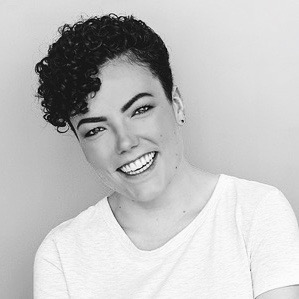To the Theatre School Graduates of 2019
Two years ago, a very scared, small, worn down version of myself sobbed in a bathroom stall. This was after I’d performed in, what I was told, one of the biggest opportunities of my young (not yet even started) career. This opportunity was a showcase, designed to introduce myself and my work to the entire theatre community. My chance to make an impact before I had even graduated. But when it was over I felt angry, terrified, and far from being in control of my own future.
This isn’t easy to admit, but it’s important to share. This year, as that same showcase rolls around once again, there will be other scared, young artists who may feel as if their career has been cut off before it even began. You don’t even have to be new or “emerging” to think this way. I’ve heard artists of every age and stage talk about one audition as their “break” and I’ve seen the pressure they put on themselves to impress that one person in a meeting.
If this person is you, I’m reaching out to you. I didn’t write this because I think I have advice to give or wisdom to share (I usually think the opposite). I didn’t write this because I think that after only 18 months in the industry I am a seasoned pro—though I have definitely learned so much in the past year and half, mainly by making mistakes.
I wrote this because I had thoughts rolling around in my head about a very difficult period of my life. I wrote this because I wish that someone had said these words to me. I wrote this because I needed to process what had happened. And I thought it was possible that this year, there might be someone else who would need to as well.

Vitals – Photo by John Wamsley
This is what I’ve found helpful—one opportunity or one person will not make or break your career. My journey, and yours too, is so much more complicated than that. To give one moment that kind of power is to deny your agency, your drive, your unique ability to experience and respond to the world in a way only you can. To give one moment that kind of power is to say that success is a steady incline, rather than a series of stumbles, falls and recoveries.
That night, after the great, big, career-ending event, I sat in the car with my incredible mom in the parking lot of a Mandarin. I cried my eyes out for the fourth time that day. My mom let me cry. She didn’t try to fix it or tell me it would be alright. She knew that in that moment, it wasn’t alright. When my panic subsided and I started to return to myself, she held my hand and said that she knew I wouldn’t let this moment define me. That she knew that when I was ready, I would keep going. I told her I wasn’t so sure. She told me that she absolutely was. And she was right, because she’s always right.
A short while later, armed with only a notebook and pen, I marched into a school tutorial with a brilliant director, Ali Joy Richardson—who is now a dear mentor and close friend—and asked how to become a director. And she took me seriously, which was one of the most generous and kind things that has ever happened to me. That’s another thing I want to note. Theatre school is not the whole theatre world. If you didn’t find your perfect fit in the tiny microcosm in which you were trained, there will be other performers, creators, mentors, and styles waiting for you after graduation. Keep searching.
Ali told me a list of things that would help me get started in directing and I did every single one of them. I read books, took classes, and volunteered to do the grunt work that would get me into rehearsal rooms where I could watch other directors work. I poured my energy into projects that I loved and that I needed no one’s permission to pursue. These projects could go nowhere. They could sit in folders on my computer or stay as visions in my mind, never to be read or seen by anyone.

Vitals rehearsal during the Paprika Festival (May 2018) – Photo by John Wamsley
Those projects kept me focused and on my path in a career where it can feel like very little is within your control. You’ve had four years of other people telling you what plays are important and which styles to study to build a foundation. But now is your time to figure out what kind of theatre you want to make and what kind of artist you truly are.
As for me, who knows? Maybe in a year, I will have moved on from those fantasy projects and found something else. Or maybe I will dust them off, turn visions into action and share them with the world. Maybe someone else will find that experience meaningful. It’ll be meaningful for me because it will be a project driven by my own artistic agency. It’ll be a new moment, something that I discovered and developed because I wanted to, something that I made myself. How incredible is that?
And I’m currently right in the midst of one of those projects. It’s happening. And I’m terrified once again, but this time in a manner of my own choosing. It’s a play I picked because I felt it was important. A play performed by an actor whose work I love and respect. And a play directed and designed by me and produced by the company I co-founded with a dear friend. We have been rehearsing for months. This script has been living with me for almost a year. This milestone was never just a fleeting moment, or even a series of moments. It was hours of hard work and, regardless of the result, I’m so proud to have fought for every single second.
If you have art that you need to make, find a way to give yourself that opportunity.

Lauren Wolanski as Anna in Vitals – Photo by John Wamsley
So, here’s my final message to you, fellow artist. I would never suggest that letdowns and disappointments don’t happen. They happen. And they can be painful as hell to work through. Allow yourself the time to grieve a moment lost, but recognize that it is just that. One moment. There will be many more. Be gentle with yourself, be kind, but be firm. Recognize your resilience, then continue on your way because there is so much more to do. We need you out here.









Comments